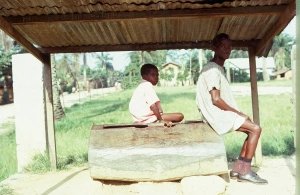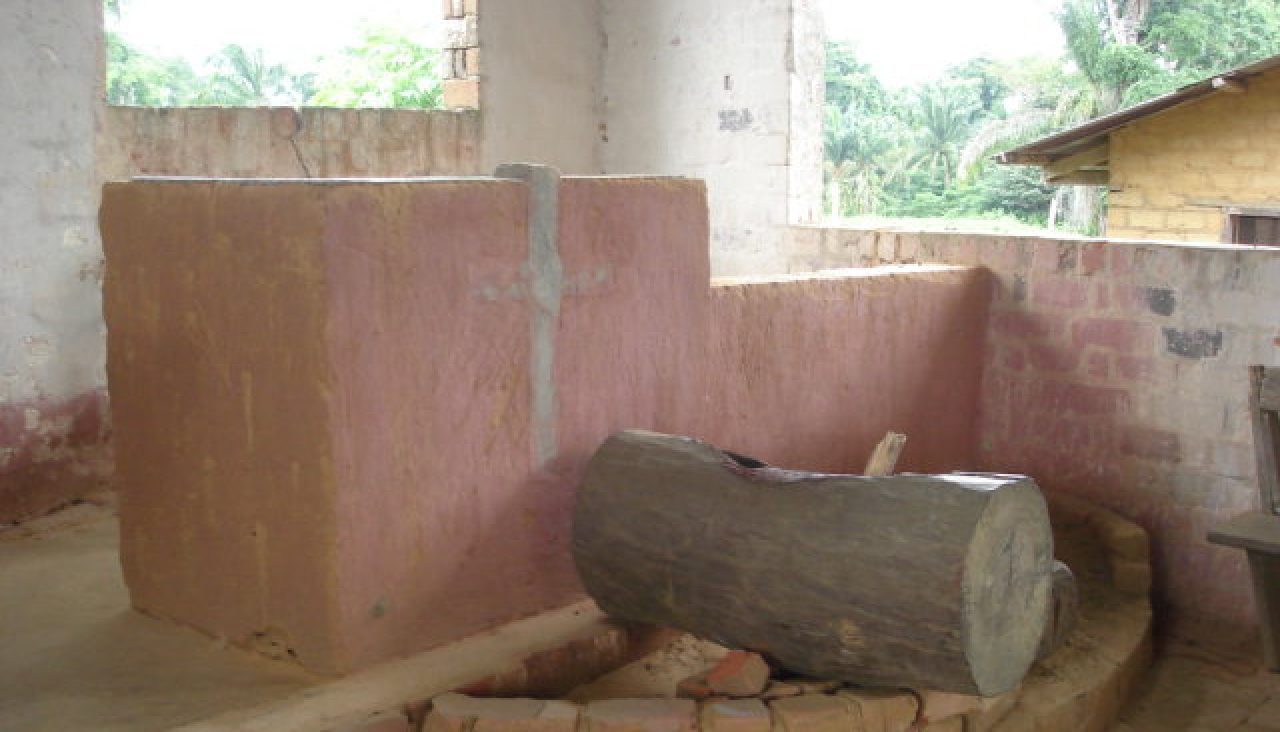
On April 4, 1967 at Riverside Church in New York City, civil rights leader Dr. Martin Luther King spoke out against the U.S. waging war on Vietnam. His “Beyond Vietnam” sermon will undoubtedly stand as a landmark speech in the history of the United States. Among the words of powerful prophecy we read,
“The war in Vietnam is but a symptom of a far deeper malady within the American spirit, and if we ignore this sobering reality [applause], and if we ignore this sobering reality, we will find ourselves organizing “clergy and laymen concerned” committees for the next generation. They will be concerned about Guatemala and Peru. They will be concerned about Thailand and Cambodia. They will be concerned about Mozambique and South Africa. We will be marching for these and a dozen other names and attending rallies without end unless there is a significant and profound change in American life and policy. [sustained applause] So such thoughts take us beyond Vietnam, but not beyond our calling as sons of the living God.
In 1957 a sensitive American official overseas said that it seemed to him that our nation was on the wrong side of a world revolution. During the past ten years we have seen emerge a pattern of suppression which has now justified the presence of U.S. military advisors in Venezuela. This need to maintain social stability for our investments accounts for the counterrevolutionary action of American forces in Guatemala. It tells why American helicopters are being used against guerrillas in Cambodia and why American napalm and Green Beret forces have already been active against rebels in Peru.”
Today a peaceful revolution is under way in the Congo. This revolution prevented the regime in power from changing the constitution last year to extend the president’s rule. Despite heightened repression of the opposition, demonstrations throughout the country this year have called on the government to prepare for the constitutionally- mandated presidential election. The response to these demonstrations has been arrests and attempts to silence Congolese citizens’ calls for change and their defense of the right to a free and fair presidential election in 2016.
One of those speaking out for change is the renowned Congolese doctor and founder of the leading clinic treating victims of the violence in eastern Congo. In a March talk at the French cultural center in Kinshasa, Dr. Denis Mukwege declared that in an election year which also brings the end of the President’s second term, “We have spoken too much of rape, of war and destruction; now is the time when we can also talk about development”. In response, the government’s spokesperson chastised the surgeon for “talking politics” and characterized his speech as “gross pandering” stating that he should focus on his medical work.
Within Congo, the government in power is attempting to silence even members of opposing political parties. In Equateur Province, the governor elected in March, M. Tony Patrick Bolamba, identifies himself as an “Independent”, which apparently is cause for suspicion. Since his election, the ruling party has attempted to unseat him to no avail. Their latest accusation challenged the validity of the new governor’s voter i.d. card. Such a trivial charge is another sign that the President’s party has been intent on preserving his rule indefinitely. In a “mini-gathering” of the ruling party held in Mbandaka two years ago its Secretary General declared, “We must enable the party and its founder (President Kabila) to hold on to power”.
What is the United States and other major foreign powers doing to support constitutionally-mandated change in Congo? What are the major powers doing to support the peaceful revolution under way now? Unfortunately, very little. Apart from statements calling for the election to be held, no action has been taken to bolster the people’s calls for change.
The focus of the major powers remains pacifying eastern Congo. On March 30, the UN Security Council voted to maintain the UN’s 20,000 member force for another year “to ensure an environment conducive to a free, fair, credible, inclusive, transparent, peaceful and timely electoral process.” Investing in reducing the mayhem and horror wrought by multiple armed groups plundering eastern Congo does little to nothing to support the holding of elections and the peaceful revolution carried out by the people of the country. The primary obstacle to holding free and fair presidential elections is not the marauding bandits of eastern Congo; the primary obstacle is in Kinshasa where the current government will never have, as the Mobutu regime never had, the popular backing nor the will to pacify the eastern region of the vast country. The latest UN resolution defies the regime’s desire to have the UN force reduced but does nothing to pressure the regime to prepare for the presidential election.
Why no sanctions on economic dealings of Congolese regime leaders as the U.S. has undertaken with respect to Venezuela? Why no withholding of aid to Congo by Belgium, France or the U.S.? Why no embargo imposed on Congolese exports? Maintaining UN troops in the East simply shores up the current regime’s armed forces and their enforcement of the status quo and stands in opposition therefore to the peaceful revolution in embryo throughout the country.
As achieved in South Africa, as well as in all the former Portuguese colonies including Mozambique, free and fair presidential elections will some day be held in Congo. It is the will and the dream of the Congolese people since independence from Belgian rule in 1960. The questions now are how much longer must they wait and at what cost? How the United States responds to the people’s organizing for change in Congo will have much to do with the answers to these questions.
Could it be that the U.S. embrace of political change in Congo will require profound change in the United States? Following the words quoted above from the “Beyond Vietnam” speech, the Baptist preacher declared,
“The words of the late John F. Kennedy come back to haunt us. Five years ago he said, “Those who make peaceful revolution impossible will make violent revolution inevitable.” [applause] Increasingly, by choice or by accident, this is the role our nation has taken, the role of those who make peaceful revolution impossible by refusing to give up the privileges and the pleasures that come from the immense profits of overseas investments. I am convinced that if we are to get on to the right side of the world revolution, we as a nation must undergo a radical revolution of values. We must rapidly begin [applause], we must rapidly begin the shift from a thing-oriented society to a person-oriented society. When machines and computers, profit motives and property rights, are considered more important than people, the giant triplets of racism, extreme materialism, and militarism are incapable of being conquered.”
Nearly fifty years later, we are still a long way in the U.S. from making the shift to that “person-oriented society” Martin Luther King envisioned. Does this mean the people of Congo cannot count on their nation’s leading benefactor, the U.S. government, to support them in their peaceful revolution? The answer to this question at this time has to be yes. Does this mean the Congolese should not count on friends in the U.S. to stand with them in their struggle for freedom? The answer to this question remains to be seen.
***************************** ******************** ******************************
The entire text of “Beyond Vietnam” can be found at the King archives’ site: http://kingencyclopedia.stanford.edu/encyclopedia/multimediaentry/doc_beyond_vietnam/index.html


Thanks for so eloquently calling this to our attention. Needless to say, the broader political situation in Congo and the resistance in Kinshasa hadn’t made it into our local paper though the conflicts in East Congo are rather frequent there.
Again, thanks, and please keep up the great work!
LikeLike
Excellent insight. Excellent person (Dr. Mkwenge). May we presume that the articles on the right are all from Irinnews? And are you just now coming back into action, Lokoleycongo?
LikeLike
Not being an “expert” on Congo, I was moved to write after visiting sites like Okapi, the Congo radio station sponsored by the UN, and noting that all the evidence points to “glissement” or delay of the election as long as possible by the administration in Kinshasa. What is surprising then is that the focus of the Congo conversation still seems to be whether or not to dialog and on what conditions rather than what to do in response to a recalcitrant not to mention anti-democratic rule. Thanks for your comment Bob.
LikeLike
Reblogged this on Erasing Borders and commented:
Dr. Mukwege’s Nobel Peace Prize represents an advance of the Congolese people – and all humanity. Could it be that his award will do more to bring about the political change desparately needed in in Congo than all the millions of dollars and the lives expended in peacekeeping in the still war torn nation?
LikeLike
Pingback: Dr. Mukwege I Presume – Lokoleyacongo